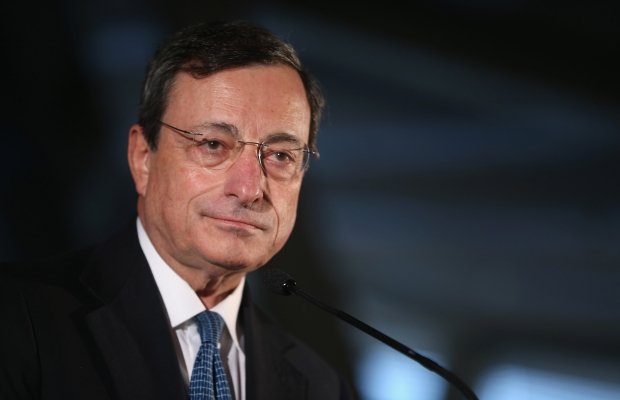Draghi’s good kind of deflation

Setting monetary policy for the whole Eurozone was never going to be easy – one interest rate for all the economies from Germany to Greece is always going to leave plenty of people unhappy.
European Central Bank boss Mario Draghi today tried to weigh up the balance between suffering in the periphery and recovery in parts of the core – and gave a kicking to the doves’ case for a rate cut.
The ECB’s main target is price stability, in its case defined as below but close to two per cent inflation. Inflation fell to 0.7 per cent in January, well below that target.
That has left some analysts calling for an interest rate cut and even fearing widespread deflation if no action is taken.
Currently countries like Greece are experiencing falling prices, clearly far below the inflation target.
But Draghi refused and even hinted he won’t cut rates at all in the near future.
“We can dispense with the question of deflation. Certainly inflation is subdued, we can expect low inflation for an extended, protracted period of time,” he said.
“Inflation expectations are firmly anchored. We do not see much of a similarity with what happened in Japan in 1990s/early 2000s.”
And after ruling out Eurozone-wide, Japan-style deflation, Draghi even welcomes some of the cause and effect of the price falls.
“Much of the adjustment, the decline in inflation, comes from the four programme countries, Spain, Ireland, Portugal and Greece. So all in all this would signal relative price adjustment rather than any deflation phenomenon.”
To cap it off, Draghi said there are positive signs of the economy recovering and that bank lending should be on the up once the stress tests are over, again ruling against a rate cut.